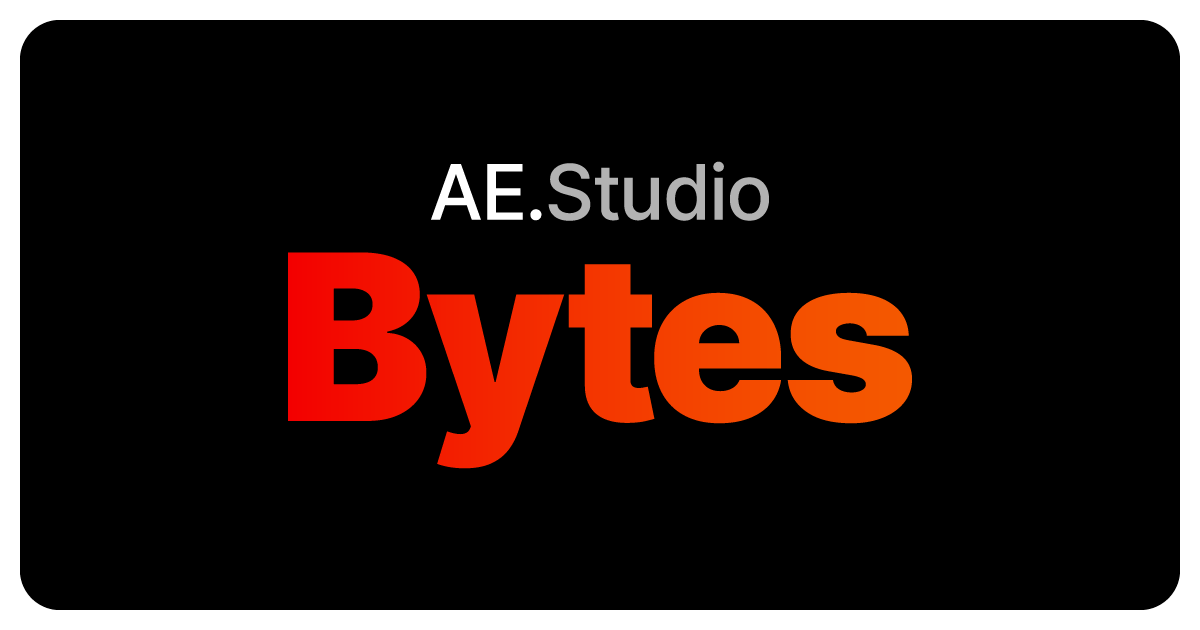- AE Studio Bytes
- Posts
- AI Success Series [Part 4]: Where AI actually makes sense
AI Success Series [Part 4]: Where AI actually makes sense
4 signs you've found an AI project worth building


This email is part 4 of our AI Success Series, where we break down the three fundamental mistakes that doom 85% of AI projects to failure (and how to make sure yours succeed).
You can access the previous issues here:
===
Now that we’ve covered the three deadly sins of AI implementation, let’s talk about how to identify where AI might make sense in your business.
To illustrate each point, we’ll also show you case studies of real clients we’ve helped to implement AI.
Where AI actually makes sense
Most AI projects fail because AI, by itself, is not a business strategy.
Solving the right problem is a strategy.
AI is the trendy thing right now, but it’s not always the correct solution for every scenario.
So the first step is to ask: what specific pain points are you trying to solve?
There are four clear signals that you've found an AI-worthy problem:
1. Repetitive or high-volume tasks
Is your team doing the same thing hundreds or thousands of times? That's a flashing neon sign for AI.
One of our clients, IncomeMax, was drowning in repetitive Q&A sessions needed to support their customers (financially vulnerable families).
To fix that, we built an AI assistant named “Max” that now handles this work, freeing their human advisors to focus on the complex, high-touch support that only humans can provide.
2. Costly or slow workflows
Look for processes that bog down your team or burn through resources. If something takes days or lots of human effort, AI can compress that dramatically.
For Jupiter Intelligence, we built an AI-powered chatbot platform that lets anyone ask questions about climate data in plain English and get answers instantly.
This turned a slow, expensive data pull into a quick conversation for oil companies, governments, etc. to assess their risk.
3. A clear goal + usable data
A clear success metric and good data are non-negotiable.
For Alpha's AI tutoring platform, we had well-defined learning outcomes to aim for and plenty of content to work with. This allowed us to train and evaluate the AI based on real educational goals.
The results: Alpha’s student test scores are now top 2% in the nation!
4. Known processes
AI isn't magic. If your experts can't outline how to complete a task, an AI won't figure it out either.
Our client Global Shop Solutions already knew how to manually aggregate data from their invoices and vendor quotes in excruciating detail. But, it took them way too much time.
So we built them an AI model to parse that data (based on GPT-4) that reduced overhead costs by 90% and saved six figures in just 10 weeks.
Have a project in mind that fits these criteria?
Let's chat about whether AI could deliver real value for your business.
If you want to take a peek at AE Studio’s other case studies, check us out here.
In the next issue: We'll dig deeper into the exact development processes we use to build some of the most successful AI products on the market.
There will be plenty of tips and tricks you can steal — so keep an eye out!
See you then,
— The AE Studio Team
